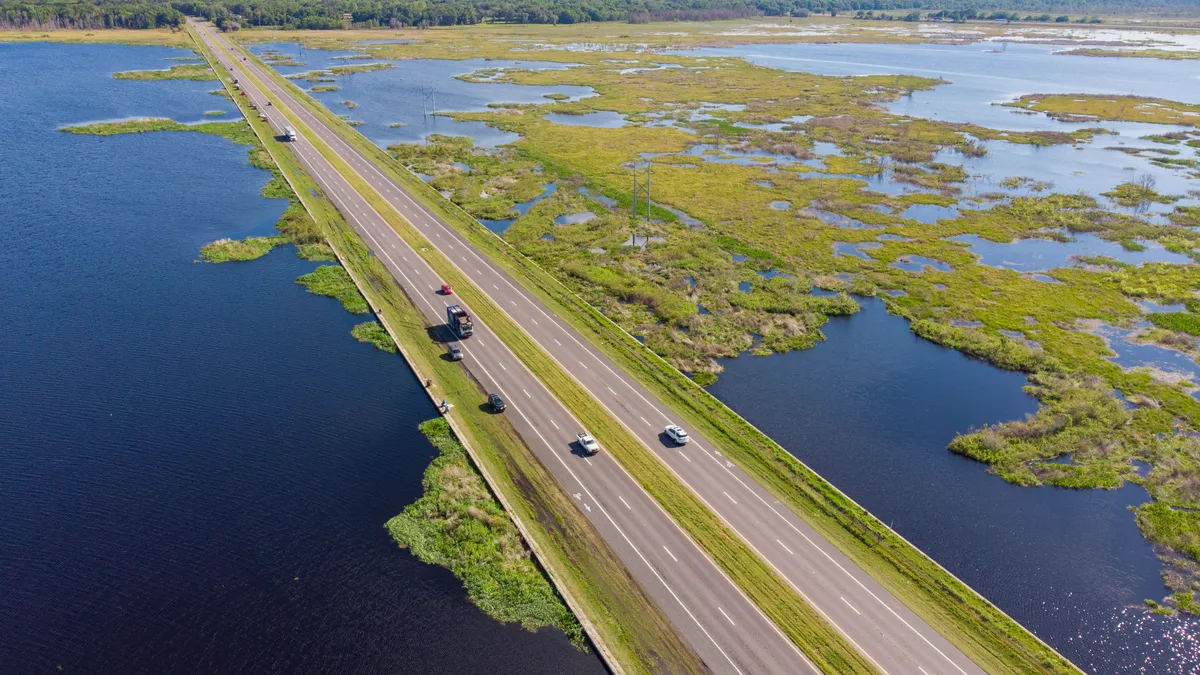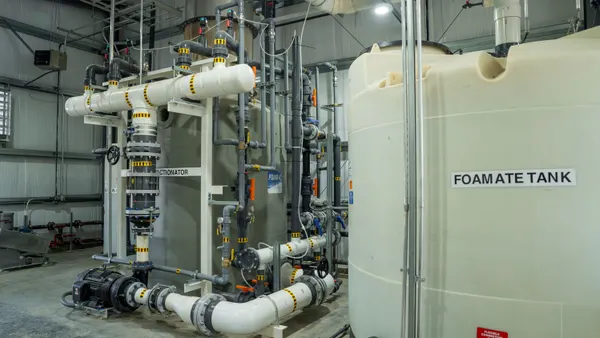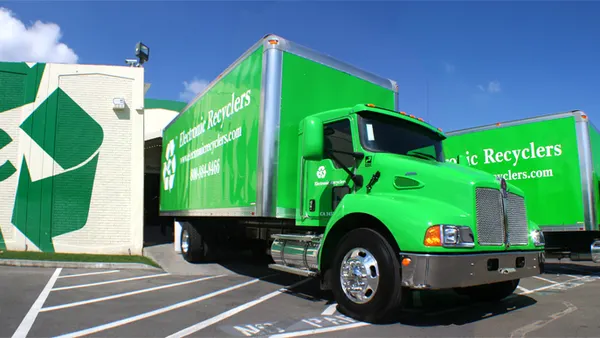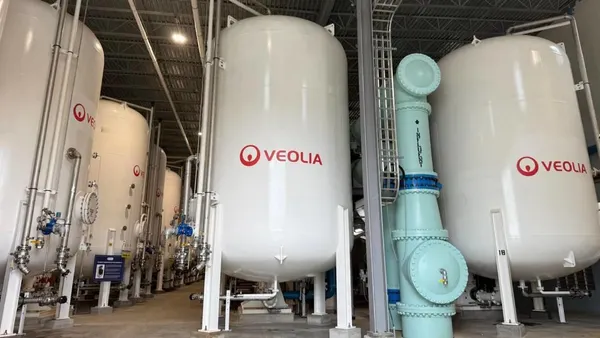Dive Brief:
- The city of Gainesville, Florida – home to the University of Florida – is looking to be a regional leader on zero-waste policy, with new ordinances set to take effect in the next couple years to reduce landfill waste, The Gainesville Sun detailed this spring. The city has a goal for zero waste by 2040.
- Forthcoming requirements seek to boost edible food recovery and organics recycling among commercial generators; promote reuse and recycling of home goods within multifamily complexes; and implement a single-use plastic foodware by-request-only policy for businesses and grocery stores.
- Separately, hauler GFL Environmental has zeroed in on Gainesville for what executives said during a May investor day will represent the largest single site deployment for battery electric vehicles in North America, with 30 to 40 trucks expected by the end of 2025. The company said it anticipates benefits from reduced maintenance costs, minimal parts wear, and less need for highly skilled mechanics.
Dive Insight:
Gainesville set its sights on creating zero-waste policies inspired by some of the most advanced cities in the nation, with help from a since-sunsetted zero waste subcommittee, which included some city commissioners. “The attitude has been: enact the ordinance and the infrastructure will follow,” said Michael Heimbach, sustainability manager in the solid waste division of Gainesville’s Public Works Department. “Put it on paper and let the industry follow as a mechanism to be successful.”
Being a college town, there’s constant turnover of apartments, which sets up the potential for furnishings and packaging waste — or reuse and recycling. And many people want to respect the environment in North Central Florida, Heimbach said.
“We recognize that we're a fast-growing community. There's a lot of waste that will be generated from that,” Heimbach said. “So the ability to get out in front of that and address it and reduce the amount of waste going to landfill and the environmental impacts I think are key to our neighbors here in the city.”
As far as infrastructure needs, nonprofits and other organizations seeking to reduce waste when students move out at the end of the semester will need some warehouse space or a way to distribute things quickly. Likewise, community composters lack the infrastructure volume to handle the level of food waste and organics people want to divert. There’s also no construction and demolition debris facility yet, but the county is moving forward with some proposals, Heimbach said.
There is no state-level support for the programs, Heimbach said.
Florida established a statewide goal in 2008 of achieving a 75% recycling rate by 2020. In 2018, that rate stood at 49%.
Gainesville has another expected sustainability benefit to come through its solid waste contract. GFL currently has the Gainesville waste and recycling collection contract, and according to an update the company shared during its May 24 investor day, it will roll out 30 to 40 BEVs by the end of 2025.
According to Heimbach, Gainesville’s RFP did address vehicles, and electric scored more points than certain other alternative fuel options.
GFL’s planned BEV deployment in Gainesville is a bit of an outlier in GFL’s current fleet strategy. The company envisions that 50% to 70% of the company’s near-term truck replacement purchases will be fueled by compressed natural gas, Billy Soffera, senior vice president of operations, said during the investor day presentation.
But Gainesville presents the opportunity to gather key information going forward, and the success of the electric rollout there “will certainly drive and inform our future efforts,” Soffera said.











